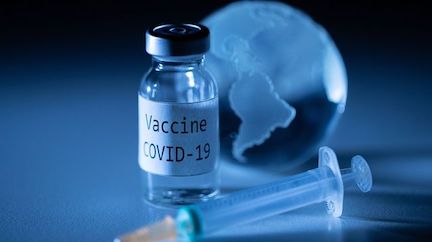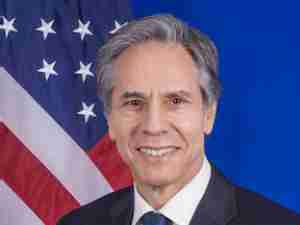Spain backed a U.S. proposal to waive intellectual property rights for coronavirus vaccines, breaking ranks with Germany and complicating efforts by the European Union to form a common stance.
“We in the Spanish government welcome Biden’s proposal to suspend patents,” Spanish Prime Minister Pedro Sanchez said in Porto on Friday ahead of talks with other EU leaders. “But we think it’s insufficient and that we have to be more ambitious.”
His government sent around a proposal ahead of the meeting calling for accelerating the transfer of technology for making the vaccines to all countries around the world as well as bolstering production and distribution.
Spain’s position sets the stage for a tense debate over the bloc’s response to the pandemic. The country is at odds with Europe’s biggest economy as well as drugmakers, who warned that such a move will harm efforts to stem the pandemic.

While the head of the bloc’s executive arm, Ursula von der Leyen, agreed to discuss U.S. President Joe Biden’s call to waive patent protections, German Chancellor Angela Merkel dismissed it. Her health minister, Jens Spahn, said the problem is not patents but production capacity and availability, and took a swipe at Washington over its decision to block exports of Covid-19 shots.
“I would be pleased if the United States of America were prepared, just like the European Union, to release doses produced in the U.S. for export,” Spahn said Friday in Berlin. “The EU produces for the world, in the knowledge that we are only safe when everyone in the world is safe.”
French President Emmanuel Macron said on Friday that while he welcomes the debate over intellectual-property rights, he wants to protect innovation. He also prodded the U.S. and the U.K. to do more to help other countries.
“Today the Anglo-Saxons are blocking many of these ingredients and these vaccines,” he said in Porto, adding that France is working closely with Germany on the issue. “What is at stake currently isn’t really intellectual property. You can give IP to labs, who don’t know how to produce it and they won’t produce it tomorrow.”
Portugal, which holds the EU’s rotating presidency, says suspending patents would be a “very important” step, but also pointed to production issues.
“We must not forget that we have a production-capacity problem and that this has to be resolved,” Augusto Santos Silva, Portugal’s foreign minister, said on the sidelines of the EU leaders’ summit in Porto. “That is why everyone needs to make an effort, because the supply chains of the materials needed for the production of vaccines are global.”
The split among EU members and the fierce opposition of drugmakers feed into a prolonged debate on the issue at the World Trade Organization, casting doubt on whether waivers could be deployed in time to help the fight against the pandemic. While EU leaders will discuss the matter at Friday’s summit , it’s unlikely that concrete decisions are imminent.
A European Commission spokeswoman told reporters in Brussels on Friday that the EU’s executive arm hasn’t held discussions with the Biden administration since the U.S. proposal was tabled earlier this week. The bloc first needs to define its own position and member states need to give the commission a mandate to negotiate a waiver, the spokeswoman said, adding that this is why the issue will be taken up by EU leaders at their meeting in Porto.
Officials and diplomats in Brussels cautioned that WTO deliberations will take months. Talks will also likely result only in partial waivers, as there’s little chance countries such as Germany and the U.S., whose companies pioneered the development of messenger-RNA technology used in some Covid vaccines, will agree to cede intellectual property to competitors such as China.
In any case, most poor countries in the world have neither the capacity nor the expertise to produce such advanced treatments, the officials have said. EU countries are thus expected to continue lobbying the U.S. and the U.K. to allow more exports and share their stock with developing countries.
The need for vaccines is “still enormous,” Margrethe Vestager, the EU’s competition commissioner, said in Porto. “That is what needs to be in focus—so not only the patent but also the production and all the things that goes into the production for the vaccines to be delivered.”









